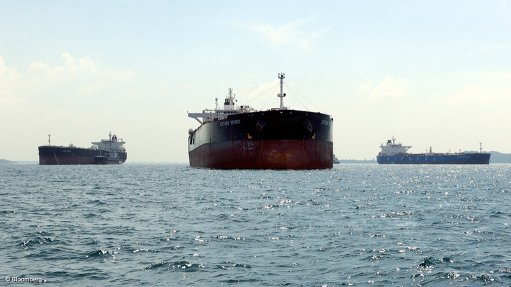SADC’s opportunity for atonement
The citizens of two Southern African Development Community (SADC) member countries – Zimbabwe and the Democratic Republic of Congo (DRC) – go to the polls this year in what this lowly journalist regards as a chance for the regional bloc to mend its tattered reputation. But whether this opportunity will be seized remains to be seen.
While the SADC has always been more than ready to intervene in little Lesotho each time constitutional standards for the transfer of power are contravened, it has not reacted with the same degree of alacrity to similar crises in these two ‘problem child’ countries that will be electing new leaders in 2018.
Who will forget former South African President Thabo Mbeki – who was the SADC point man on Zimbabwe – telling journalists in April 2008 that there was no crisis in the country, despite its electoral commission dragging its feet on releasing the results of an election that long-serving President Robert Mugabe had apparently lost? In the event, the results were made available only several weeks later, showing (suspiciously) that the winner, Morgan Tsvangirai, had failed to secure more than 50% of the votes, which paved the way for a runoff between him and Mugabe.
It was at that point that Zimbabwe’s army, under the leadership of General Constantino Chiwenga – the so-called hero who engineered Mugabe’s resignation in November and has since been appointed Vice President – went on the rampage, brutalising perceived anti-Mugabe voters in opposition strongholds. Hundreds reportedly died. To avoid further casualties among his supporters, Tsvangirai withdrew his candidature and Mugabe went on to ‘win’ the farcical one-horse race.
The African Union was, however, more sensible than the SADC, declaring Mugabe’s ‘re-election’ null and void. Then followed months of negotiations aimed at ushering in a unity government. Mbeki was tasked with mediating the negotiations, the outcome of which was a far cry from what the opposition would have desired. A new unity government ensued, with Mugabe at the helm. And, once again ensconced in State House, he simply refused to implement key reforms that would level the electoral playing field. Little wonder he and his party went on to win the 2013 elections resoundingly.
The electoral playing field remains skewed and new elections are seven to eight months away. Will, this time around, the SADC act or pretend that all is well? If there were any doubts about how Zimbabweans feel towards the SADC, the scenes that played out on the streets of Harare in the lead-up to Mugabe’s so-called resignation and were beamed into millions of homes worldwide should have dispelled them – protesters waving placards telling the current SADC chairperson, President Jacob Zuma, to stay out of Zimbabwe’s affairs.
Meanwhile, in the DRC, the electoral commission has announced that elections to replace President Joseph Kabila and for new legislative, regional and local representatives will take place in December. Kabila’s second and final constitutionally permitted five-year term ended in 2016, but he has stayed put ever since, citing logistical and security challenges associated with organising elections in the sprawling country. The SADC has not called to order this tin pot dictator, who was propelled to power following the 2001 assassination of his father and predecessor, Laurent-Desire Kabila. The simple question the organisation should have asked Kabila Jnr is: If elections could be held in 2006 and 2011, why could they not be held at the end of his second term in December 2016?
What our region needs is an SADC that is akin to the Economic Community of West African States (Ecowas), which did not hesitate to flex its muscle when former Gambian President Yahya Jammeh tried every trick in the book to hang on to power, despite having lost an election to Adama Barrow. Unlike the SADC, Ecowas did not pursue ‘quiet diplomacy’ in its engagement with Jammeh – it amassed troops on the Senegal-Gambia border and was ready to strike if he had lingered a little longer.
Article Enquiry
Email Article
Save Article
Feedback
To advertise email advertising@creamermedia.co.za or click here
Announcements
What's On
Subscribe to improve your user experience...
Option 1 (equivalent of R125 a month):
Receive a weekly copy of Creamer Media's Engineering News & Mining Weekly magazine
(print copy for those in South Africa and e-magazine for those outside of South Africa)
Receive daily email newsletters
Access to full search results
Access archive of magazine back copies
Access to Projects in Progress
Access to ONE Research Report of your choice in PDF format
Option 2 (equivalent of R375 a month):
All benefits from Option 1
PLUS
Access to Creamer Media's Research Channel Africa for ALL Research Reports, in PDF format, on various industrial and mining sectors
including Electricity; Water; Energy Transition; Hydrogen; Roads, Rail and Ports; Coal; Gold; Platinum; Battery Metals; etc.
Already a subscriber?
Forgotten your password?
Receive weekly copy of Creamer Media's Engineering News & Mining Weekly magazine (print copy for those in South Africa and e-magazine for those outside of South Africa)
➕
Recieve daily email newsletters
➕
Access to full search results
➕
Access archive of magazine back copies
➕
Access to Projects in Progress
➕
Access to ONE Research Report of your choice in PDF format
RESEARCH CHANNEL AFRICA
R4500 (equivalent of R375 a month)
SUBSCRIBEAll benefits from Option 1
➕
Access to Creamer Media's Research Channel Africa for ALL Research Reports on various industrial and mining sectors, in PDF format, including on:
Electricity
➕
Water
➕
Energy Transition
➕
Hydrogen
➕
Roads, Rail and Ports
➕
Coal
➕
Gold
➕
Platinum
➕
Battery Metals
➕
etc.
Receive all benefits from Option 1 or Option 2 delivered to numerous people at your company
➕
Multiple User names and Passwords for simultaneous log-ins
➕
Intranet integration access to all in your organisation

















